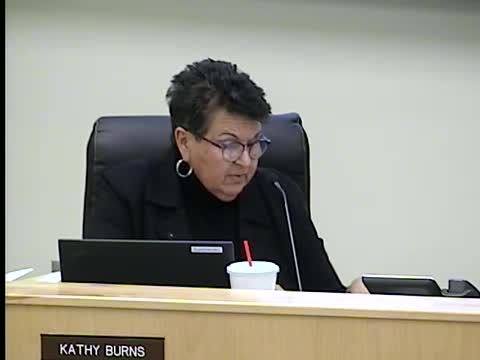Superintendent urges district consider full-time chief of legal services amid heavy workload for board attorney
Get AI-powered insights, summaries, and transcripts
Subscribe
Summary
Superintendent Doug Burns presented a job description and multi-year legal-fee accounting to support creating a district chief of legal services, saying the board attorney currently handles an expanded daily workload.
Superintendent Doug Burns told the board that the district has accumulated substantial day-to-day legal needs and that the current arrangement — relying primarily on contracted board counsel — now imposes a significant workload on the board attorney.
‘‘We created this job description for a chief of legal services,’’ Burns said, adding the district compiled legal-fee totals for the past two years to show the scale of services the board attorney has provided beyond typical board-counsel duties. Burns said that while the board attorney (Brett Steger) has done ‘‘a wonderful job,’’ the district increasingly requires daily counsel for personnel, bargaining, litigation and procedural hearings.
Steger agreed the district could benefit from in-house district counsel for matters such as federal litigation, ESE due-process hearings and expulsion proceedings while the board attorney could continue to handle bargaining and board-facing matters. Board members discussed budgetary implications, whether such a position could be funded from impact-fee/concurrency funds for growth-related legal work, and the advantages of an attorney with school-law specialization.
Several members called the idea sensible and said an in-house counsel might ultimately be cost-effective compared with large outside invoices; others asked staff to provide firm cost estimates. Burns proposed a closed (advertised) ‘‘shade’’ meeting after the Nov. 18 reorganization session to cover sensitive personnel and legal strategy details and to continue the discussion.
Action items and next steps No hiring decision was made on Nov. 10. The board asked staff to assemble more complete legal-fee records and to discuss funding options (including impact-fee allocations) ahead of a scheduled closed meeting after the Nov. 18 reorganization session.
